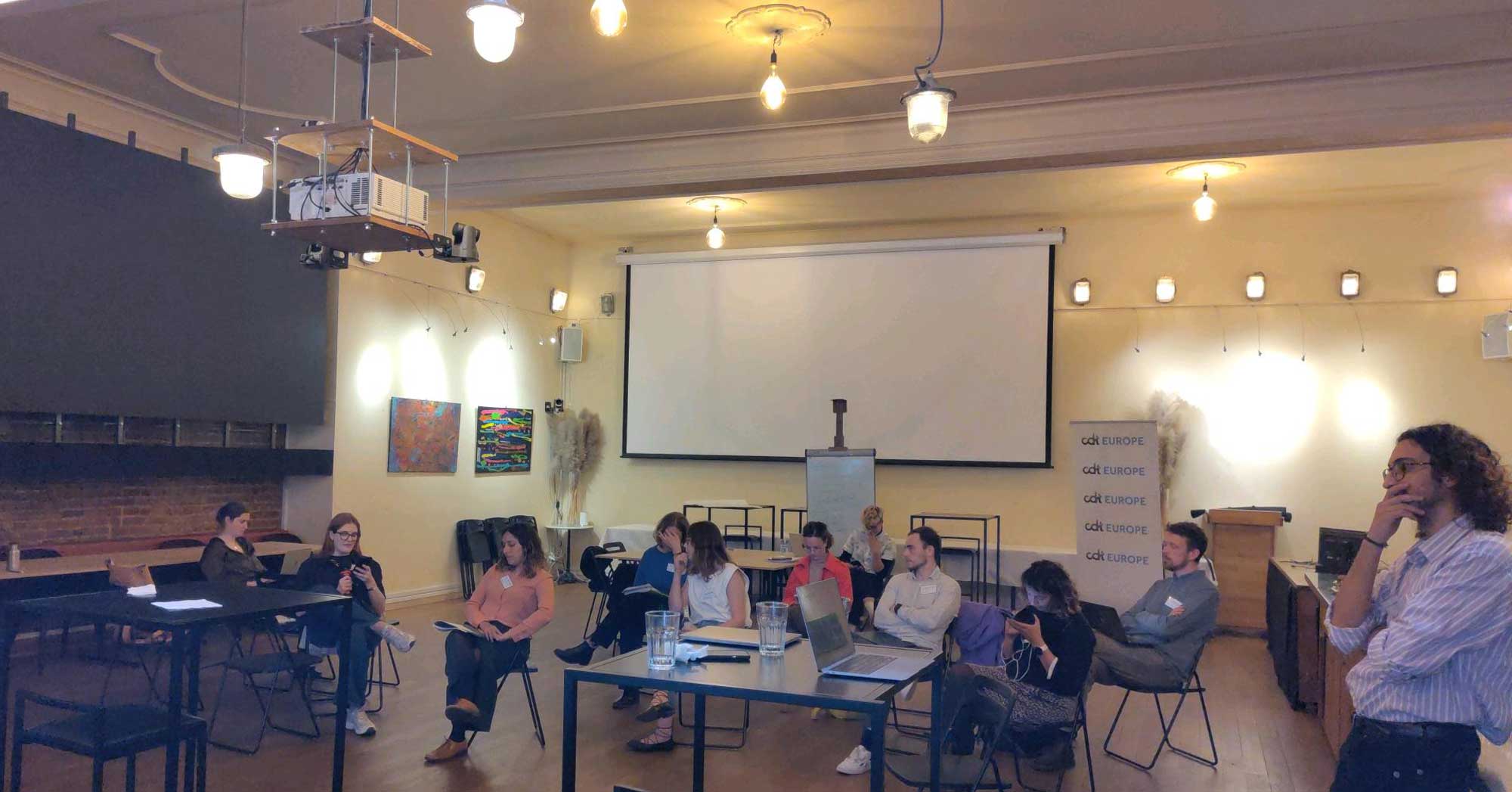On 18 June, CDT Europe held a closed civil society workshop to discuss advancing fundamental rights in the AI Act implementation, bringing together representatives of key civil society organisations to brainstorm key opportunities and strategic approaches to ensure human rights remain at the forefront of the roadmap to implementation.
The Artificial Intelligence Act, a world-first in AI regulation, is set to be published in the official journal of the European Union in July 2024 and enter into force in early August after several years of negotiation. Despite its ambitious attempt to set future-proof rules to govern the development and deployment of AI while protecting against fundamental rights risks, the Act has been subject to mixed reception by human rights organisations amidst concerns that the Act did not go far enough.
The same week that the AI Board hosted its first meeting, our workshop brought together civil society representatives for a discussion of crucial next steps to take in the short term.
CDT Europe Programme Director for Equity and Data and Counsel Laura Lazaro Cabrera and journalist Luca Bertuzzi opened the event with a discussion on lessons learned for civil society during the AI Act negotiations and a deep dive into the current political and regulatory landscape. This opening session was followed by a panel discussion led by CDT EU’s AI Policy Fellow Jonathan Schmidt, the European Network of Equality Bodies (Equinet) representative Milla Vidina, and European Network of National Human Rights Institutions and Belgian National Human Rights Institution Unia representative Nele Roekens on the governance ecosystem around the implementation of the AI Act. The panel addressed the structure and role of the various entities vested with governance responsibilities and tasks under the Act. Discussants also discussed the role of fundamental rights authorities, set to play a key oversight role by virtue of their express powers created by the Act to access documents pertaining to high-risk AI systems under Annex III of the Act.
The panel was followed by a presentation of Karolina Iwanska from the European Center for Not-for-Profit Law, which provided attendees with a broad overview of the forthcoming procedures and outputs under the AI Act – around 80 in total – detailing specific avenues and opportunities for civil society engagement in the coming months based on the AI Act’s timeline.
The morning sessions were following by breakout sessions in the afternoon, each delving into specific outputs foreseen under the AI Act:
- Fundamental rights impact assessments;
- Codes of Practice around general purpose AI models;
- Guidelines on prohibited AI systems; and
- Guidelines on AI systems categorised as high-risk under the Act
During the event, participants highlighted the importance of ensuring the availability of mechanisms for robust and meaningful civil society participation in the development of the abovementioned outputs. Participants discussed strategies to ensure coordinated civil society inputs to inform the efforts of the European Commission and AI Office going forward.
The workshop was an important first step after the AI Act’s approval to establish priorities for civil society to support the ongoing work of EU institutions as well as the governance entities created by the AI Act. Through exchanges such as these, CDT Europe will continue to encourage civil society collaboration to find innovative solutions to some of the most pressing human rights challenges in the digital age.

